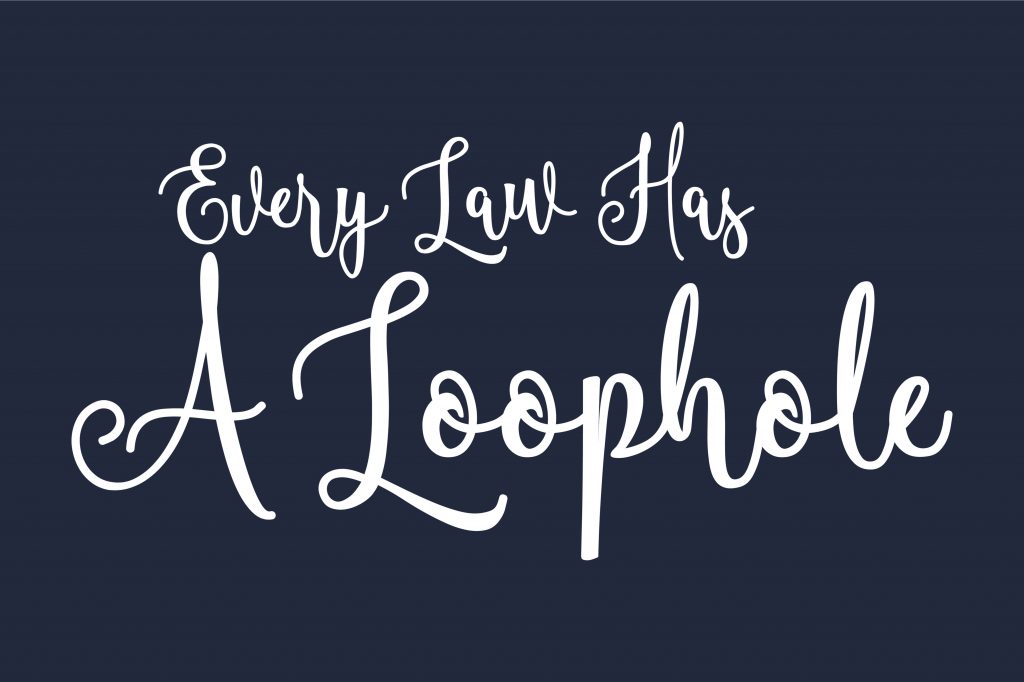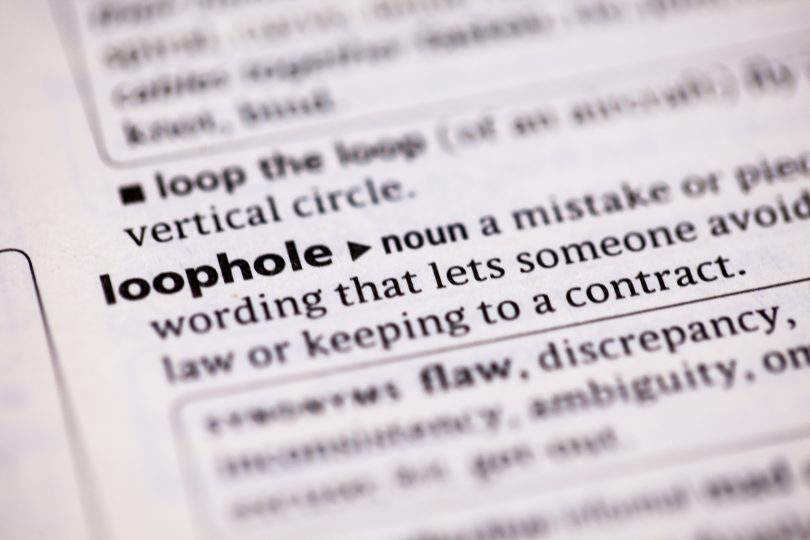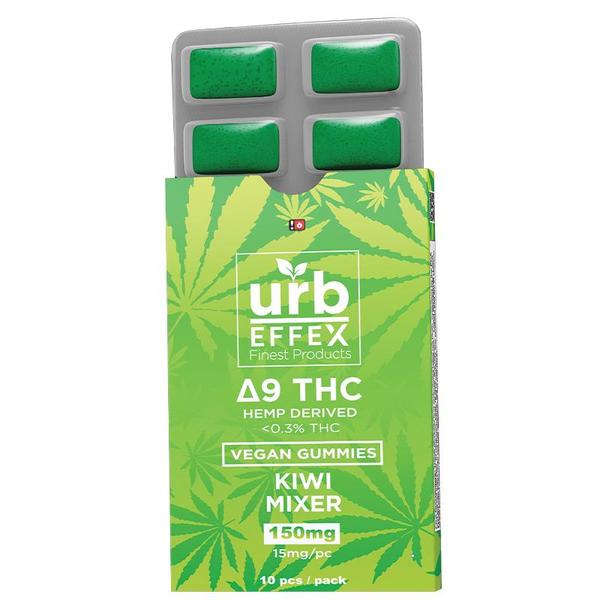Sure, legal loopholes are pretty cool sometimes, especially when they allow us to get around laws, without actually breaking them. But other loopholes in life exist. One of them, the ‘no-one-will-do-anything-about-it’ loophole, relates specifically to the delta-8 THC industry. It might not be a legal loophole, but it sure does the job.
The loophole delta-8 THC falls into is an interesting one because its not actually centered on confusion. The ‘no-one-will-do-anything-about-it’ loophole is really just an inability to police an industry, more than uncertainty over what’s legal. Luckily, since ‘no-one-will-do-anything-about-it’, the delta-8 THC industry should remain intact. We’ve got a great selection of delta-8 THC deals, along with many other compounds from the cannabis plant. So check ’em out, and pick your favorite product. Check out our selection of products in The Delta 8 Weekly Newsletter. And save big on Delta 8, Delta 9 THC, Delta-10, THCO, THCV, THCP & HHC products by checking out our “Best-of” lists!
What’s a legal loophole?
Usually when talking about loopholes, we’re talking about legalities. A legal loophole is defined as a “technicality that allows a person or business to avoid the scope of a law or restriction without directly violating the law.” This term is used a lot when it comes to paying taxes, or rather, avoiding paying them. In such circumstances, “loopholes provide ways for individuals and companies to remove income or assets from taxable situations into ones with lower taxes or none at all.”
The whole point of a legal loophole is that no law is technically being broken, yet something is happening that clearly violates the intention of the law. This is usually because of an error, miswording, or omission, which leaves a gray area that can be taken advantage of. Oftentimes legal loopholes lead to the updating of laws to be more precise, or court cases that can set new legal precedents in light of needing to clarify specifics.
Not every loophole is technically a legal one, though they all deal with legalities somehow. If, say, a government has a law, but it never intends to enforce it, it has nothing to do with the clarity of the legislation, but with an inability to appropriately administer sanctions for it. In this way, something can meet the standards of being illegal, yet fall into what I’ll call a ‘no-one-will-do-anything-about-it’ loophole.

Is the delta-8 THC market legal?
Delta-8 THC is a naturally occurring compound that is formed through the oxidation of delta-9 THC. In the presence of oxygen, delta-9 loses electrons, creating delta-8, which is more stable than its predecessor, since it has already been oxidized. This means it has a longer shelf life. The two compounds have the same chemical formula of C₂₁H₃₀O₂, and many of the same health benefits.
Delta-8 is often stipulated as providing slightly less psychoactive effect, not producing the same kind of anxiety as delta-9, and for keeping users more energetic and clear-headed, without the couch-locking effects of delta-9. Delta-9 oxidizes to form delta-8 at an extremely low rate, low enough that products cannot be made directly from cannabis-derived delta-8, particularly if coming from low-THC hemp plants. Alternatively, delta-8 THC can be synthesized in one of two ways, either being converted from CBD, or with chemical solvents.
In the 2018 US Farm Bill, hemp and hemp derived compounds were legalized, with a specific definition given to hemp, which separates it from other cannabis plants. The definition of ‘hemp’ is:
“…the plant Cannabis sativa L. and any part of that plant, including the seeds thereof and all derivatives, extracts, cannabinoids, isomers, acids, salts, and salts of isomers, whether growing or not, with a delta-9 tetrahydrocannabinol [(D 9 -THC)] concentration of not more than 0.3 percent on a dry weight basis.”
The biggest point of confusion here seems to be in understanding the difference between ‘synthetic’ and ‘plant-derived’ compounds. Yeah, delta-8 THC is perfectly legal under the definition of hemp, so long as it comes directly from the plant. On the other hand, when delta-8 is synthesized, it no longer falls under the definition of hemp, and is instead regulated by the Federal Analogues Act. This was backed up recently in a letter to the executive secretary of the Alabama Board of Pharmacy (Donna C. Yeatman, R.Ph.) from the Department of Justice, via the DEA.
In the letter, after describing tetrahydrocannabinols, and their place in Schedule I of the DEA’s Controlled Substances list, it goes on to say what we technically already knew: “Thus, D8-THC synthetically produced from non-cannabis materials is controlled under the CSA as a ‘tetrahydrocannabinol’” This means synthetics do not qualify as hemp. Since not enough delta-8 THC can be produced directly from hemp or marijuana plants to account for product production, the only delta-8 used in products is synthesized, and therefore illegal.
How does the loophole effect delta-8 THC?
Now that we’ve established there isn’t technically a legal loophole, let’s get into the loophole that most certainly does exist with delta-8 THC. Obviously, there is a legal aspect to it, since it has to do with sanctions for law-breaking, but it has nothing to do with ambiguity in legal texts. It has simply to do with the inability to police the given rules, and that’s a loophole in and of itself.
In order for the US federal government to police the production and sale of delta-8 THC, it would have to put out a lot of money. To give an idea of just how much the US government has already put into losing drug wars, consider that over one trillion has been spent in the last 50 years, and people haven’t exactly stopped taking illicit drugs. Think of how much $1,000,000,000,000 could have helped poverty-stricken children, people fighting disease, our educational systems, and homelessness.
Now imagine how much flack the US government would get for putting more money into fighting cannabis in any way. Not only do 18 states now allow recreational use, with 40 US locations (including states, DC, and territories) that have full comprehensive medical programs, but as a result of complete federal criminalization in 1970, nearly all 50 states have some kind of a decriminalization measure, even if a minor one. Add onto that, that the federal government itself is currently working through two bills, one a decriminalization measure which functions partially as a legalization (MORE Act), and one an outright legalization (Cannabis Administration and Opportunity Act), and the idea of the DEA going after delta-8 THC becomes that much more preposterous.
There might be confusion over it, and there might still be government smear campaigns out there, but it’s a bit late in this particular game for the government to try to lie, misinform, or bully the public about weed anymore. And that’s why, regardless of how clear the regulations are, the ‘no-one-will-do-anything-about-it’ loophole applies very well to delta-8 THC.
Other cannabis loopholes of interest
Loopholes abound in the world of cannabis, and can be seen all over the globe. One interesting one is India, and the bhang loophole. Bhang is a cannabis drink native to the area which is made from the leaves of the plant. Though cannabis itself is illegal in India, bhang is consumed by the masses. In fact, bhang is so important to Indian culture, and India was such a large exporter of hemp at the time, that in the meetings to establish the 1961 Single Convention on Narcotic Substances, a global treaty that designates regulation for illicit drugs, it took into account India’s desire to keep bhang with the following wording:
“”Cannabis” means the flowering or fruiting tops of the cannabis plant (excluding the seeds and leaves when not accompanied by the tops) from which the resin has not been extracted, by whatever name they may be designated.” Bhang therefore is legal by the Single Convention, but still undermines Indian law.
Another interesting loophole can be seen in Slovenia. Slovenia has some harsh cannabis laws, essentially illegalizing marijuana, though allowing for a small amount of personal use. Along with possession being illegal, so is the cultivation of cannabis for either medical or recreational purposes. However, Slovenia goes by EU regulation, which allows hemp to be grown with up to .2% delta-9 THC. In fact, hemp plants can be grown in Slovenia without a license by individuals, so long as they don’t use over .1 hectare of land. So while Slovenia makes the cultivation of cannabis illegal, industrial hemp laws provide a legal loophole for Slovenians to grow their own hemp.
Yet another loophole relates to Spain, and how it allows the operation of cannabis social clubs. Spain has decriminalized many drugs, though public use and possession are still illegal. Personal cultivation and use of cannabis are decriminalized, but must be done in private, as there is no commercial market. In 2015, the Supreme Court even made the statement: “Organized, institutionalized and persistent cultivation and distribution of cannabis among an association open to new members is considered drug trafficking.”
Yet, somehow, Spain still allows the operation of cannabis social clubs. Set-up like non-profits, cannabis social clubs allow growing, distribution, and use of cannabis, and in a social environment. This works by the clubs doing the cultivation for members that pay a cover fee, and then allowing them the herbs to smoke, and a social place to smoke them. As clubs can have upwards of 50,000 members, this can mean a major social event. The Spanish cannabis social club loophole makes weed all but legal in Spain.
Some loopholes are more on the negative side, however, and can cause damage to users. Like Malta’s loophole that personal cultivation is decriminalized, but only up to one plant, and not accounting for the weight of output. Though that one plant is allowed, if a user has more than this, it becomes illegal, even if all plants are for personal use only. It even stands if multiple plants produce less than one bigger plant! In this way, its legal to have one big plant that produces as many as six smaller plants, and illegal to have six smaller plants that don’t produce as much as one big one. This has been upheld in court, with prison sentences being given to people who grow more than one plant for personal use, even if the plants don’t produce combined, as much as one bigger plant.
Conclusion
While the loophole that synthetic delta-8 THC falls into isn’t one that comes from legal confusion, it certainly is still a loophole. Whether it’s called the ‘no-one-will-do-anything-about-it’ loophole, or the ‘it-doesn’t-matter’ loophole, or the ‘illegal-but-not-enforced’ loophole, the main point here is that the legality is not relevant, because the penalties for law-breaking will likely never be carried out. So, is delta-8 THC legal as a synthetic? No! And that should be clear by now. Just as clear as the fact that ‘no-one-will-do-anything-about-it’.
Welcome everyone! You’ve made it to CBDtesters.co, the best cannabis and psychedelics-related news publication online, offering the latest and most thought-provoking stories of today. Check-thru the site daily to stay aware of the fast-paced world of legal drugs and industrial hemp, and sign up for The Delta 8 Weekly Newsletter, so you’re never in the dark about what’s going on.
Disclaimer: Hi, I’m a researcher and writer. I’m not a doctor, lawyer, or businessperson. All information in my articles is sourced and referenced, and all opinions stated are mine. I am not giving anyone advise, and though I am more than happy to discuss topics, should someone have a further question or concern, they should seek guidance from a relevant professional.










